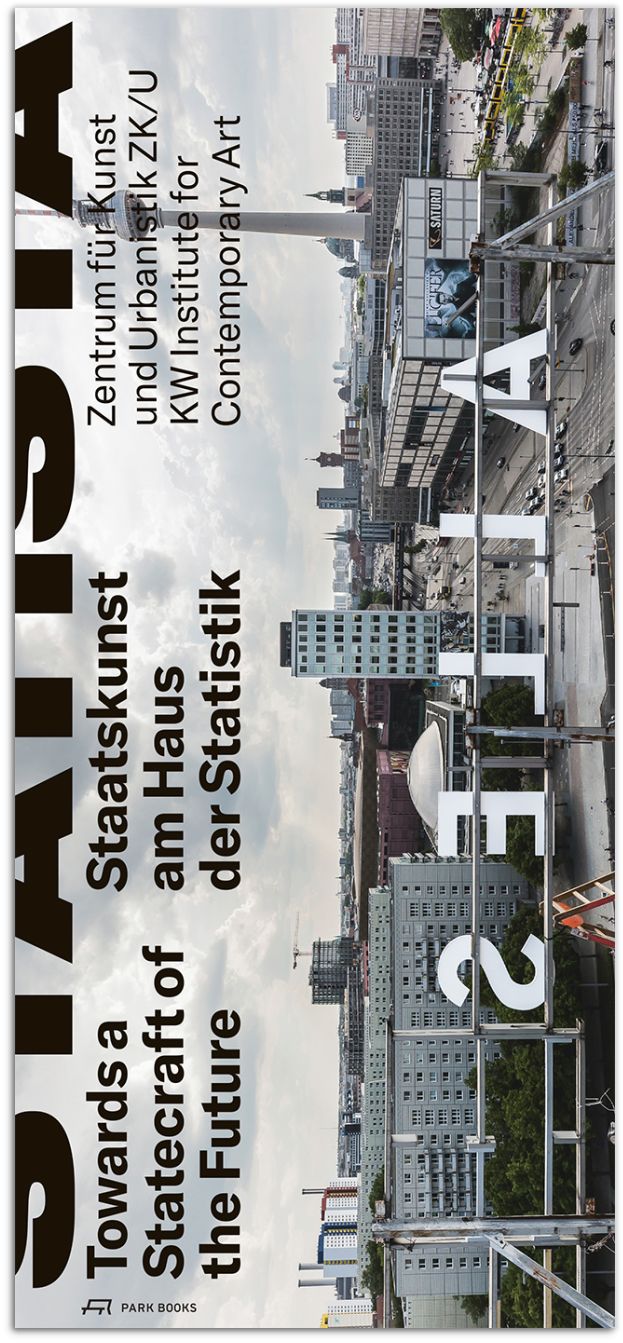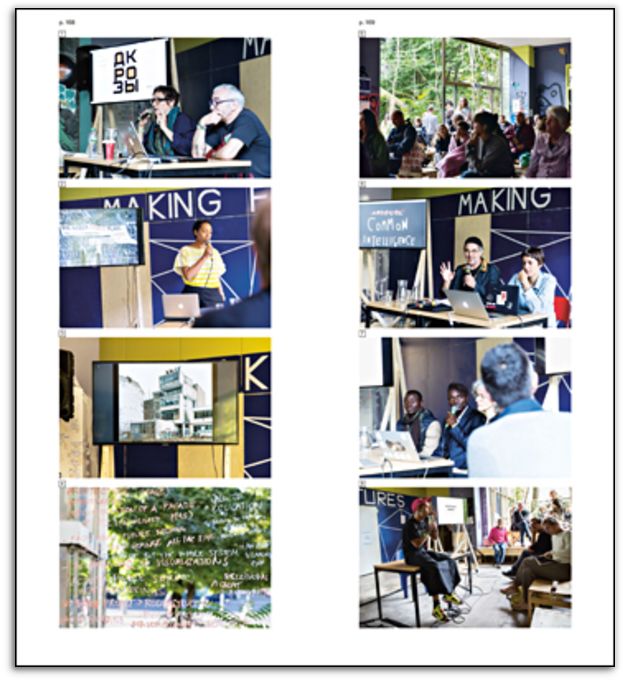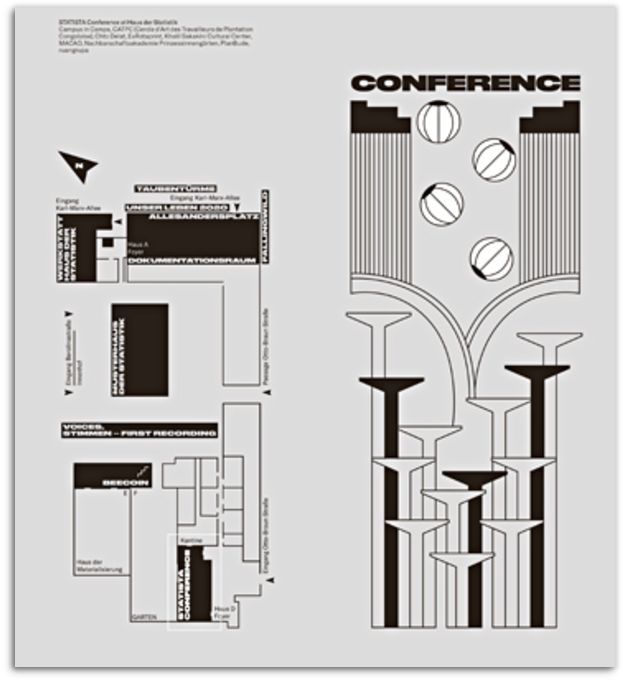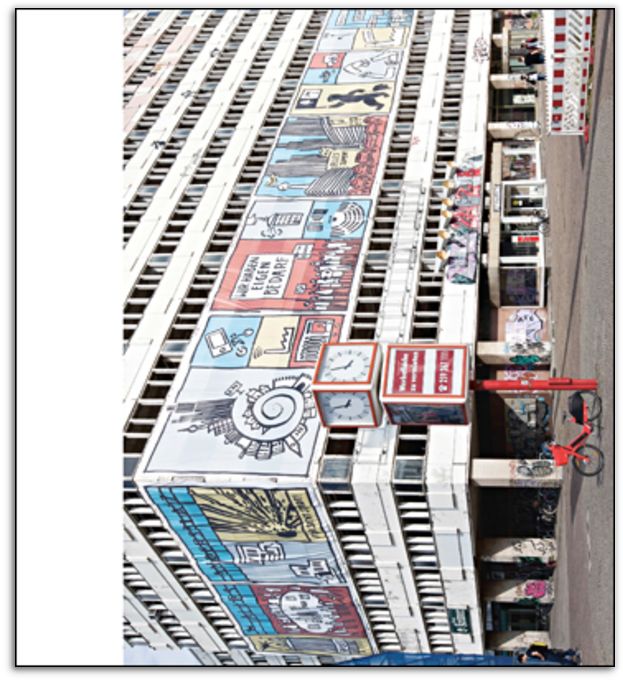Statista
Towards a Statecraft of the Future
Berlin's former Haus der Statistik as laboratory of art and collaborative urban development
GVA Gemeinsame Verlagsauslieferung Göttingen
GmbH & Co. KG
P.O. Box 2021
37010 Göttingen
Germany
+49 551 384 200 0
info@gva-verlage.de
Just a few years ago, the Haus der Statistik (HdS) at Berlin’s Alexanderplatz seemed doomed. Built by a collective of architects in the 1960s to house the German Democratic Republic’s (GDR) office of statistics, the HdS was slated to be replaced by a new commercial structure. Yet in September 2015, the Berlin Alliance of Artists’ Studios Under Threat succeeded with undertaking a daring art intervention, covering most of the building’s main façade with a giant banner to announce the opening of a new center for all manners of social and cultural purposes. It was the largely symbolic first step in a story of preservation and reuse that has come to seem like a self-fulfilling prophecy: Today, the HdS is a unique, pioneering project collectively led by a broad coalition of actors in the interests of collaborative urban development.
STATISTA, one of the art projects located at the HdS, explores how a cooperative urban development guided by common welfare could work in the long term. This book offers encouraging insight into STATISTA and the events in and around the HdS since 2015, telling the stories of artists and activists whose ideas and projects spark hope and joy.
“Statista is a fascinating text: it’s part exhibition catalog, part manifesto, and part urban planning document, and is bound in a unique tall/narrow format that jibes perfectly with the book’s subject matter. That it centers around one of the most notorious and famous abandoned buildings in Berlin only adds to its appeal. Whether the overall project it documents will ultimately succeed remains to be seen, but even if it doesn’t, it serves as a lovely utopian coda to the singular history of the Haus der Statistik.” John Peck, degradedorbit.com







